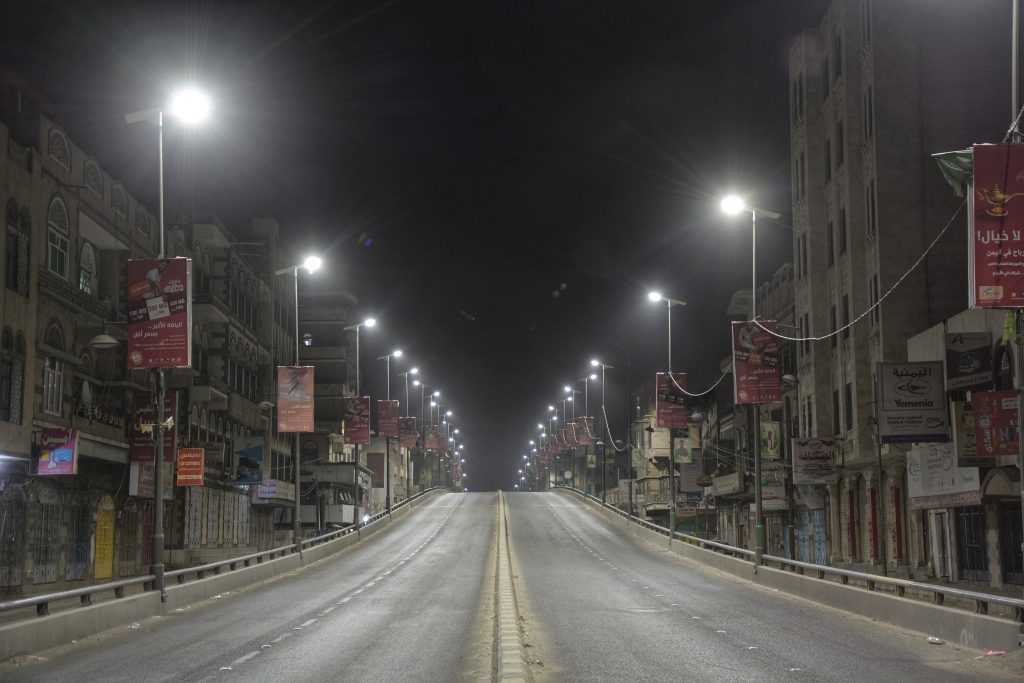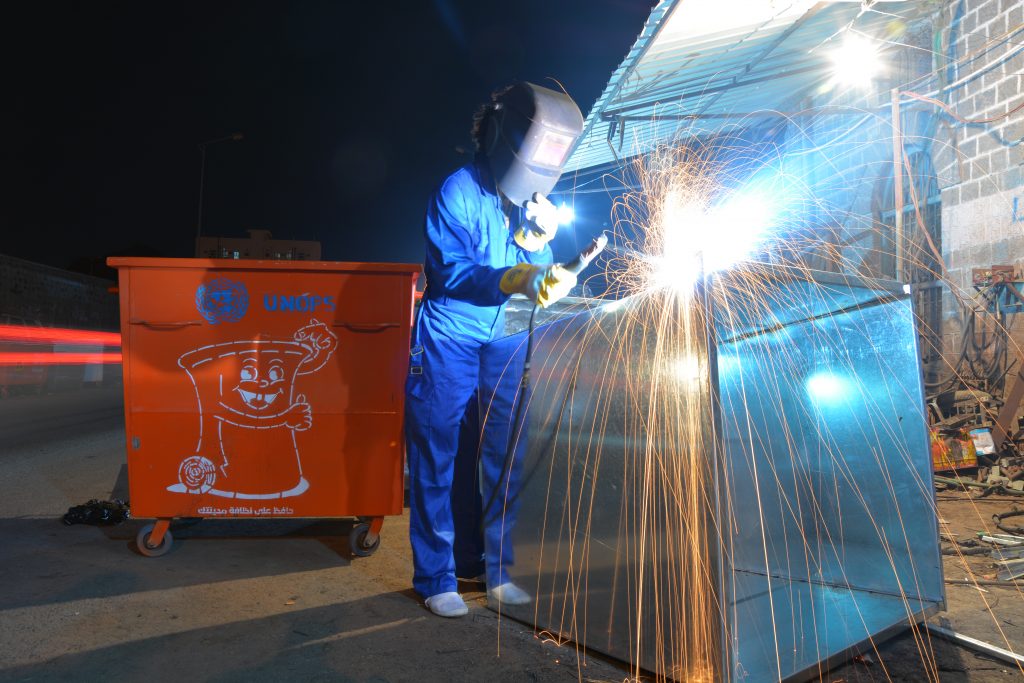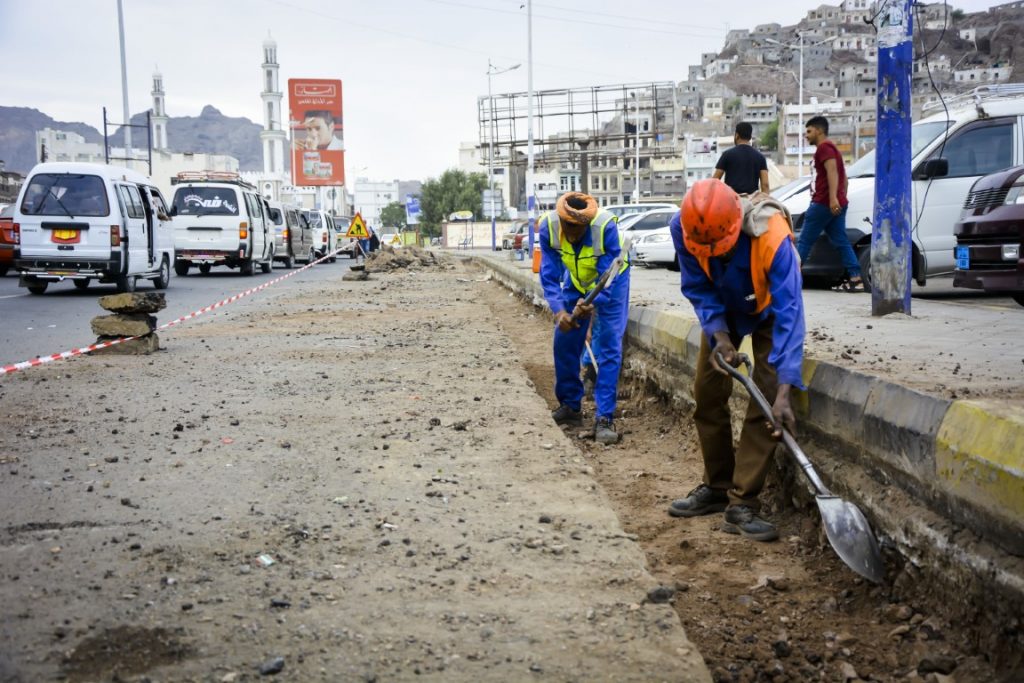Please provide your email or username to login
Please provide your email or username to login
UNOPS and World Bank Working to Restore Essential Services and Dignified Life
The Lives of Ahmed, 29 years old, and his family were getting hopeless after he lost his job due to the deteriorating economic situation as a result of the war in Yemen. As for Aliaa, 13 years old, she was in danger because her house was only a few meters away from a big pile of solid wastes that sent all types of insects to it.

50 year old Uncle Ali, was not better off. He had to go to collect water from open areas because clean water had stopped reaching their house. While Qaied, 47 years old, needs to travel daily in his car between governorates to deliver some goods to merchants. His trip is filled with danger because he passes through destroyed and muddy roads during the rainy season.
As for Um Fuad, 33 years old, suffering from kidney failure and needs three dialysis sessions every week. However, due to the lack of electricity at most health facilities, she is not able to receive service, and she cannot afford private healthcare.

All those individuals and areas are not exceptional. They are a sample from hundreds of thousands of households and areas in Yemen that are lacking basic and essential services
Since March 2015, Yemen has been witnessing an armed conflict, causing significant losses in lives, movements of internal displacement, destruction of infrastructure and suspension of service provision in key sectors. All the while half of the 26.5 million population of the country are living in areas directly impacted by the ongoing clashes.
Currently, 15 million people are unable to access basic health care services
Since the eruption of this conflict, general services such as electricity and water have been suspended, and in some instances have been fully cut out. Due to the unavailability of water supplies, piling up of garbage and failure to collect, Yemen is facing a cholera epidemic.
This catastrophic situation has turned lives of millions into complex disasters. It also pushed the need for an urgent intervention by UNOPS through the “Yemen Integrated Urban Services Emergency Project (YIUSEP)”, funded by the International Development Association of the World Bank, which started in 2017 and covers activities. The project adopts a comprehensive approach to select and implement activities in a way that achieves maximum efficiency in terms of cost, and ensuring integration in all sectors.

The project focuses on restoring access to critical urban services in selected cities where the most damage resulting from the conflicts occurred, targeting cities in Yemen with a population of 50,000 prior to the crisis. This intervention brought a great effect on the lives and livelihoods of a big portion of the project targets, especially in areas of municipal tripartite services, solid waste management, water and sanitation facilities in urban areas, paving urban streets and roads, and energy for critical and important services.
These urgent interventions resulted in commitments and effective achievements by UNOPS and its partners. In the sector of solid waste management, 600,000 m3 of piled garbage was collected and disposed of (in Aden, Mukalla and Sana’a). Young Aliaa now does not need to worry about insects invading her home.
In the water and sanitation sector, 457,891 person received clean water and safe sanitation through rehabilitation of water supply and public sanitation systems, and Uncle Ali has access to water direct from a tap in his house.
Electricity was provided to feed critical and essential services. The project managed to support 10300 megawatts of power to most needed service establishments such as health facilities, schools, and local water supplies. This has ensured that Um Fouad can receive her dialysis from the health center.
The project has provided 6263838 work day – temporary. any beneficiaries like Qaied are now able to reach their home safely and easily after the project completed renovation of 134 km of urban roads.
That is how the project contributed in restoring hope and spreading comfort and safety for many Yemenis due to its intervention. Efforts are still going on non-stop to reach more areas and beneficiaries during next year.














